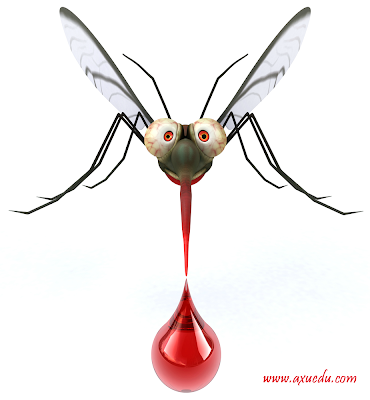Researchers at Swansea University say a fungus could be the key to controlling mosquitoes.
Fungus Metarhizium anisopliae lives in soil and kills a whole range of insects and researchers say it also affects mosquito larvae if added to the water where the insect breeds.
The insects carry diseases such as yellow fever and malaria.
According to the World Health Organisation malaria causes 800,000 deaths a year world-wide.
The team at Swansea University's department of bioscience said initial trials are very promising.
"The fungus occurs in soil and kills a whole range of insects but we've put it in the water where mosquito larvae breed and it is ingested by the insect and they die," team member Professor Tariq Butt told BBC Radio Wales.
Continue reading the main story
“Start Quote
It's quite nice that we're killing three of the major species of mosquito transmitting a whole range of diseases”
Prof Tariq Butt Swansea University
"Normally what happens is the fungus attaches to its hosts, germinates and penetrates the body of the insect, colonises the insect and in the process the insect dies.
"But, in this case it doesn't germinate it just stays as spores packed in the body, in the gut, of the insect where it causes stress which activates a number of genes which trigger a whole range of responses leading to the death of the insect."
Malaria and yellow fever
Further research is now needed to see how the fungus can be introduced as initially it was hoped it would be passed from one insect to another, he added.
"In the past we were hoping the fungus was going to emerge from the body of the insect then the spores would be carried over to the healthy larvae and create an epidemic, but now what we're seeing is we'd have to apply the fungus frequently," he added.
The hope is the research will find a way to control the insect which spreads diseases such as malaria and yellow fever.
"It is reported that 300 children die each hour in Africa because of Malaria, but other diseases which are emerging such as dengue (fever) results in thousands of deaths reported across the world and also some of these diseases have been reported in Europe," said Prof Butt.
"We've done a number of trials and it looks very, very promising. Also, it's quite nice that we're killing three of the major species of mosquito transmitting a whole range of diseases."
Source: BBC
Fungus Metarhizium anisopliae lives in soil and kills a whole range of insects and researchers say it also affects mosquito larvae if added to the water where the insect breeds.
The insects carry diseases such as yellow fever and malaria.
According to the World Health Organisation malaria causes 800,000 deaths a year world-wide.
The team at Swansea University's department of bioscience said initial trials are very promising.
"The fungus occurs in soil and kills a whole range of insects but we've put it in the water where mosquito larvae breed and it is ingested by the insect and they die," team member Professor Tariq Butt told BBC Radio Wales.
Continue reading the main story
“Start Quote
It's quite nice that we're killing three of the major species of mosquito transmitting a whole range of diseases”
Prof Tariq Butt Swansea University
"Normally what happens is the fungus attaches to its hosts, germinates and penetrates the body of the insect, colonises the insect and in the process the insect dies.
"But, in this case it doesn't germinate it just stays as spores packed in the body, in the gut, of the insect where it causes stress which activates a number of genes which trigger a whole range of responses leading to the death of the insect."
Malaria and yellow fever
Further research is now needed to see how the fungus can be introduced as initially it was hoped it would be passed from one insect to another, he added.
"In the past we were hoping the fungus was going to emerge from the body of the insect then the spores would be carried over to the healthy larvae and create an epidemic, but now what we're seeing is we'd have to apply the fungus frequently," he added.
The hope is the research will find a way to control the insect which spreads diseases such as malaria and yellow fever.
"It is reported that 300 children die each hour in Africa because of Malaria, but other diseases which are emerging such as dengue (fever) results in thousands of deaths reported across the world and also some of these diseases have been reported in Europe," said Prof Butt.
"We've done a number of trials and it looks very, very promising. Also, it's quite nice that we're killing three of the major species of mosquito transmitting a whole range of diseases."
Source: BBC

No comments:
Post a Comment